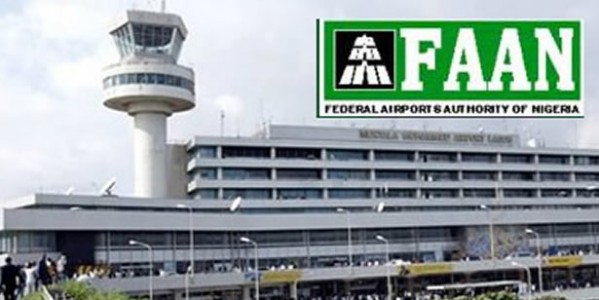
Lack of aviation fuel, economic recession and outright unavailability of foreign exchange to enable airline operators function combined to bring the Nigerian aviation sector to a new low. Though some successes were recorded, especially with the International Air Transport Association (IATA) Operational Safety Audit (IOSA) certification of some local airlines and the coming of Airbus, the aviation sector had more sorry tales to tell. ANTHONY AWUNOR writes.
Events and activities in the nation’s aviation sector have shown significant improvements since President Muhammadu Buhari assumed office two years ago, (May 29, 2015). In an effort to reposition the transportation industry, the current administration put in enormous efforts at repositioning the aviation sector through proper restructuring, infrastructural development, security and ultimately safety of lives and properties according to the International Civil Aviation Organisation (ICAO) standards.
The administration came up with the concessioning of the four of the viable airports in the country that include: Abuja, Port Harcourt, Lagos and Kano airports. The concession proposal was, however, overtaken by flight diversion from Nnamdi Azikiwe International Airport (NAIA), Abuja to Kaduna International Airport, following the poor state of the runway at the Nnamdi Azikiwe International Airport that time.
On March 8, 2017 federal government shutdown NAIA for six-weeks to give room for repairs on the runway, making the Kaduna Airport the only alternative for Abuja flights. In what can be described as a landmark achievement in Nigeria’s aviation, the federal government through the Ministry of Aviation successfully reopened the Abuja Airport, ahead of the April 19 deadline given by the government.
One of the major events that heralded the year in the aviation industry was the suspension of flight operations by three airlines in a row within a week. The airlines which shut down operations due to recession and high cost of aviation fuel, foreign exchange, charges and others were Aero Contractors, FirstNation and Arik. Although Arik recommenced operations after stoppage but others are yet to resume flight, after several months of suspension of flight operations. Consequently, Aero Contractors and Arik were put under the management of the Assets Management Company of Nigeria (AMCOM).
The true position in the year, particularly, 2016 was that airline operators barely survived in 2016, having been burdened with a lot of challenges, including lack of aviation fuel, foreign exchange, manpower, multiple taxation, charges etc. Many of them were on the verge of being declared insolvent, just as the major ones are no longer reliable, with epileptic flight operations characterised by delays, flight cancellations, fare hike and general poor customer services.
To cushion the effects of the recession, the federal government on behalf of foreign airlines and domestic operators under the aegis of Airlines Operators of Nigeria (AON) got the Central Bank of Nigeria (CBN) to include airlines operating from Nigeria in the Inter-Bank Foreign Exchange market through forward settlement.
As part of the restructuring process by the Minister of Aviation, Senator Hadi Sirika and to make proper placements in the agencies, the Aviation Ministry initiated demotions, sack and other changes at the Federal Airports Authority of Nigeria (FAAN), Nigerian Airspace Management Agency NAMA and Nigerian Civil Aviation Authority NCAA.
Despite recession and challenges faced by operators, aviation since May 29, 2015 recorded quite a number of international accolades. First was the election of the FAAN managing director, Engr Saleh Dunoma as president of Airports Council International ACI Africa; re-election of president of the International Civil Aviation Organization (ICAO) Council, Dr. Olumuyiwa Bernard Aliu and the opening of Nigerian office by renowned aircraft maker, Airbus.
Apart from all these, four more airlines in Nigeria obtained the International Air Transport Association (IATA) Operational Safety Audit (IOSA) certification. Medview Airline, Allied Air, Dana Air and Air Peace obtained the IATA’s IOSA certification between 2016 and 2017. Many new airlines are already, documenting their papers to join flight operation in the country.
To improve airport services, FAAN has stepped up activities at most of the nation’s airports for better service delivery. For instance, in November last year, the agency commissioned three ultra-modern carousels and conveyor belts at the D-Arrivals of the Murtala Muhammed International Airport (MMIA) as part of efforts to reduce delays and fast track departure formalities of arriving passengers. The facility is one of many projects embarked by the federal government to hasten passengers’ facilitation at the airports to keep pace with the growing traffic which has been on the increase since the commencement of the remodeling project, and the immense growth of the country as the fastest growing economy in Africa.
FAAN has also given most of the airports a facelift, including that of Kaduna, Kano, Port Harcourt, Abuja and Lagos where Vice President Yomi Osibanjo visited recently.
Sadly, fire razed down some offices in FAAN headquarters in Lagos on April 11, 2017. The fire incident affected some offices in the agency’s corporate headquarters. Shortly after the fire incident, FAAN in collaboration with the Lagos State Fire Department and other security agencies set up panel to investigate and find out the cause of the fire outbreak.
The administration came up with the concessioning of the four of the viable airports in the country that include: Abuja, Port Harcourt, Lagos and Kano airports. The concession proposal was, however, overtaken by flight diversion from Nnamdi Azikiwe International Airport (NAIA), Abuja to Kaduna International Airport, following the poor state of the runway at the Nnamdi Azikiwe International Airport that time.
On March 8, 2017 federal government shutdown NAIA for six-weeks to give room for repairs on the runway, making the Kaduna Airport the only alternative for Abuja flights. In what can be described as a landmark achievement in Nigeria’s aviation, the federal government through the Ministry of Aviation successfully reopened the Abuja Airport, ahead of the April 19 deadline given by the government.
One of the major events that heralded the year in the aviation industry was the suspension of flight operations by three airlines in a row within a week. The airlines which shut down operations due to recession and high cost of aviation fuel, foreign exchange, charges and others were Aero Contractors, FirstNation and Arik. Although Arik recommenced operations after stoppage but others are yet to resume flight, after several months of suspension of flight operations. Consequently, Aero Contractors and Arik were put under the management of the Assets Management Company of Nigeria (AMCOM).
The true position in the year, particularly, 2016 was that airline operators barely survived in 2016, having been burdened with a lot of challenges, including lack of aviation fuel, foreign exchange, manpower, multiple taxation, charges etc. Many of them were on the verge of being declared insolvent, just as the major ones are no longer reliable, with epileptic flight operations characterised by delays, flight cancellations, fare hike and general poor customer services.
To cushion the effects of the recession, the federal government on behalf of foreign airlines and domestic operators under the aegis of Airlines Operators of Nigeria (AON) got the Central Bank of Nigeria (CBN) to include airlines operating from Nigeria in the Inter-Bank Foreign Exchange market through forward settlement.
As part of the restructuring process by the Minister of Aviation, Senator Hadi Sirika and to make proper placements in the agencies, the Aviation Ministry initiated demotions, sack and other changes at the Federal Airports Authority of Nigeria (FAAN), Nigerian Airspace Management Agency NAMA and Nigerian Civil Aviation Authority NCAA.
Despite recession and challenges faced by operators, aviation since May 29, 2015 recorded quite a number of international accolades. First was the election of the FAAN managing director, Engr Saleh Dunoma as president of Airports Council International ACI Africa; re-election of president of the International Civil Aviation Organization (ICAO) Council, Dr. Olumuyiwa Bernard Aliu and the opening of Nigerian office by renowned aircraft maker, Airbus.
Apart from all these, four more airlines in Nigeria obtained the International Air Transport Association (IATA) Operational Safety Audit (IOSA) certification. Medview Airline, Allied Air, Dana Air and Air Peace obtained the IATA’s IOSA certification between 2016 and 2017. Many new airlines are already, documenting their papers to join flight operation in the country.
To improve airport services, FAAN has stepped up activities at most of the nation’s airports for better service delivery. For instance, in November last year, the agency commissioned three ultra-modern carousels and conveyor belts at the D-Arrivals of the Murtala Muhammed International Airport (MMIA) as part of efforts to reduce delays and fast track departure formalities of arriving passengers. The facility is one of many projects embarked by the federal government to hasten passengers’ facilitation at the airports to keep pace with the growing traffic which has been on the increase since the commencement of the remodeling project, and the immense growth of the country as the fastest growing economy in Africa.
FAAN has also given most of the airports a facelift, including that of Kaduna, Kano, Port Harcourt, Abuja and Lagos where Vice President Yomi Osibanjo visited recently.
Sadly, fire razed down some offices in FAAN headquarters in Lagos on April 11, 2017. The fire incident affected some offices in the agency’s corporate headquarters. Shortly after the fire incident, FAAN in collaboration with the Lagos State Fire Department and other security agencies set up panel to investigate and find out the cause of the fire outbreak.



